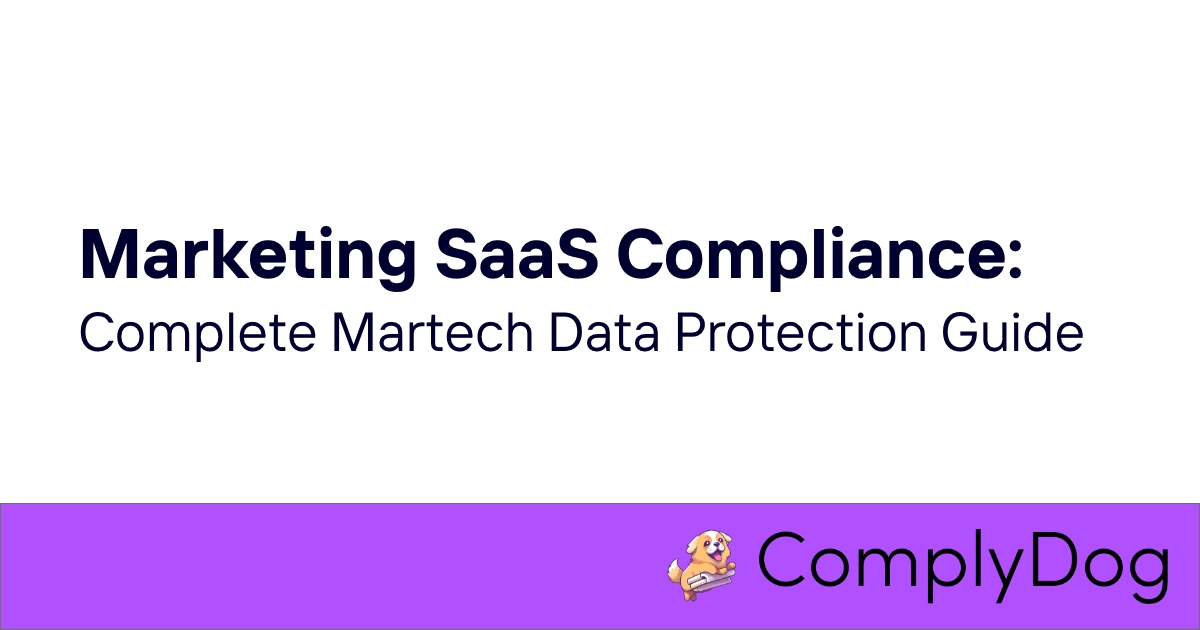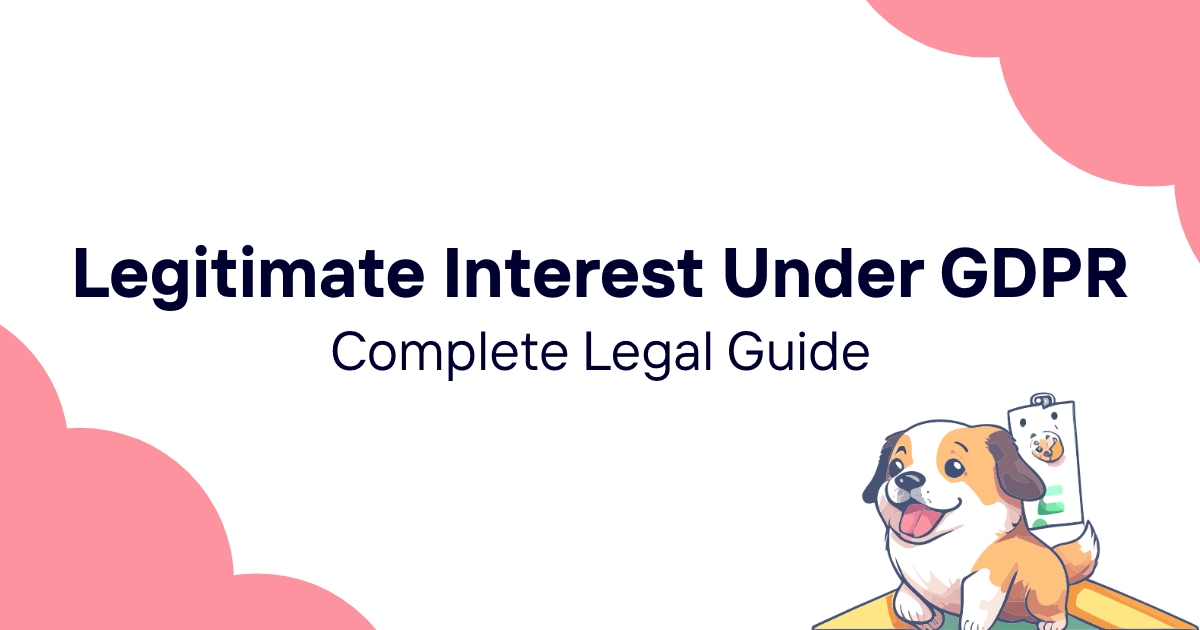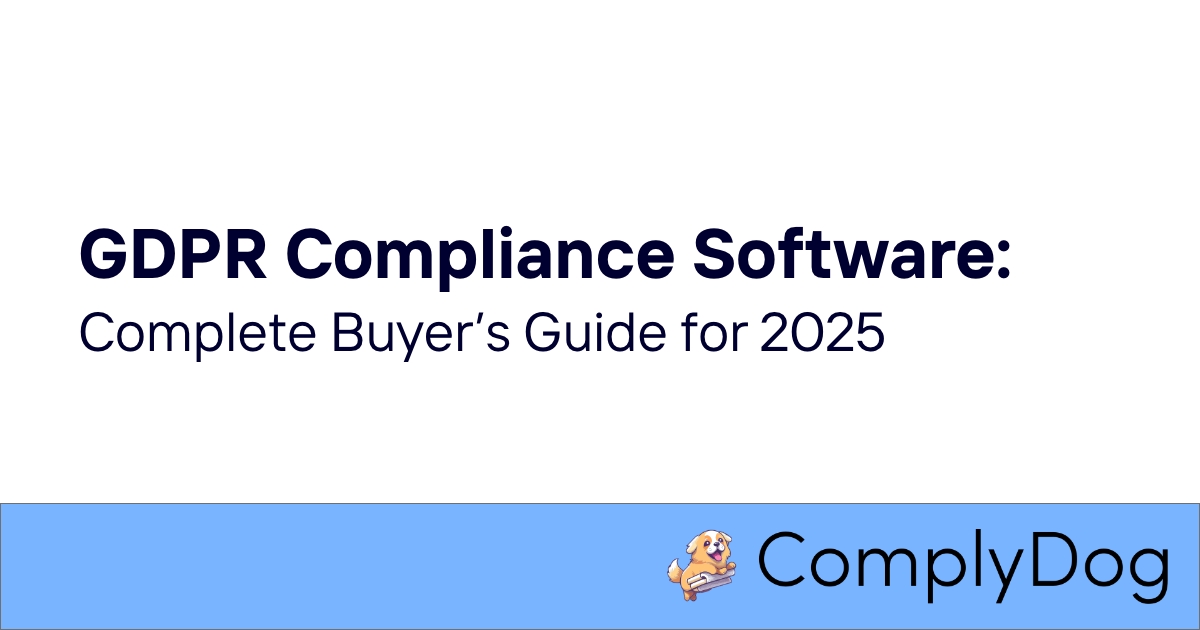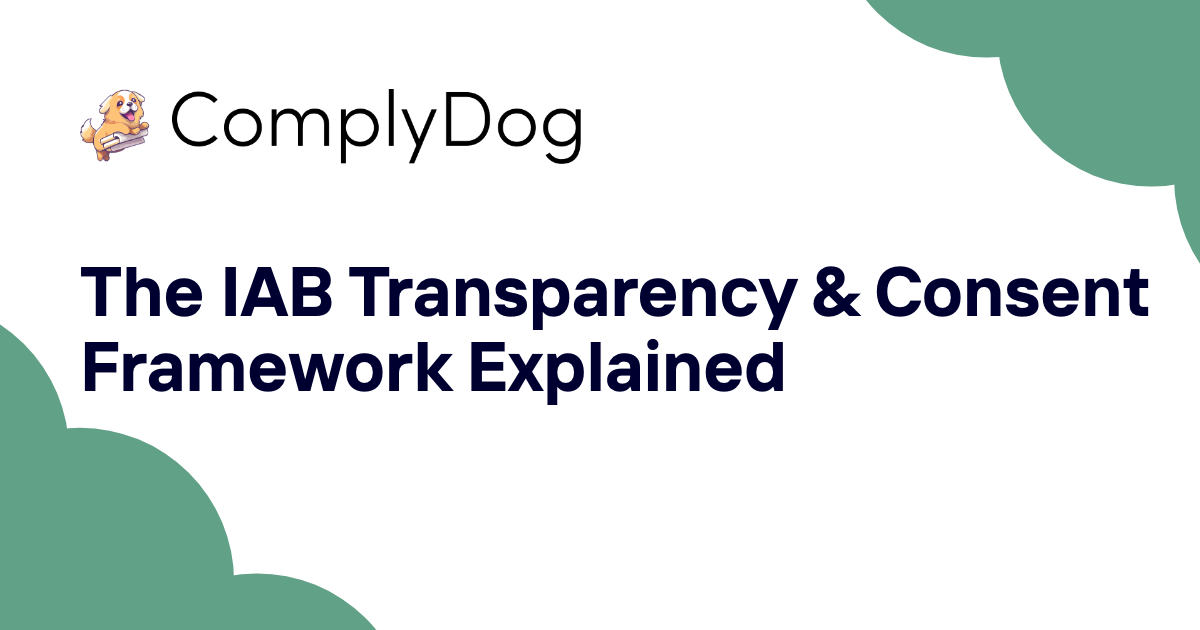Marketing SaaS platforms process some of the most personal and sensitive customer data in the business world. You're tracking online behavior, analyzing purchase patterns, segmenting audiences based on demographics, and making automated decisions about who sees what content. Every feature you build touches data that could violate privacy laws if handled incorrectly.
The regulatory environment is getting tougher. GDPR transformed how European marketing operates, with strict consent requirements and substantial fines for violations. Similar laws are spreading globally, with California's CCPA and other regional regulations creating a patchwork of compliance requirements that marketing teams must navigate.
But here's the reality - compliance isn't just about avoiding fines anymore. Privacy-conscious consumers are choosing brands based on data protection practices. Marketing platforms that can demonstrate strong privacy protections win more enterprise deals and build stronger customer relationships. Privacy has become a competitive advantage for companies that get it right.
ComplyDog helps marketing SaaS platforms turn compliance into a selling point by providing comprehensive compliance portals that demonstrate data protection commitment to prospects and customers.
Marketing Technology SaaS Privacy Landscape
The martech landscape involves complex data flows between dozens of different platforms, each with its own compliance requirements and privacy implications. Understanding this ecosystem is critical for building compliant marketing technology.
Core Privacy Regulations Affecting Martech:
- GDPR - European regulation requiring explicit consent for most marketing activities and providing extensive individual rights
- CCPA - California law giving consumers rights to know, delete, and opt out of personal information sales
- CAN-SPAM - US law regulating commercial email with specific opt-out and identification requirements
- CASL - Canadian anti-spam legislation requiring express consent for commercial electronic messages
- Regional privacy laws - Growing number of state and national laws modeled on GDPR or CCPA
The challenge isn't just understanding individual regulations - it's managing compliance across multiple jurisdictions simultaneously. A marketing campaign might need to comply with GDPR for European prospects, CCPA for California residents, and CAN-SPAM for US email recipients all at the same time.
Martech Data Flow Complexity:
Modern marketing stacks involve data flowing between CRM systems, marketing automation platforms, analytics tools, advertising networks, and dozens of specialized point solutions. Each integration creates potential privacy compliance issues.
Map your entire martech ecosystem to understand where personal data flows and what privacy obligations apply at each step. A lead captured on your website might flow through form builders, CRM systems, email platforms, analytics tools, and advertising networks before generating a marketing qualified lead.
First-Party vs Third-Party Data:
Privacy regulations treat first-party data (collected directly from customers) differently than third-party data (obtained from external sources). Many martech platforms combine both types, creating complex compliance scenarios.
Document the source of all personal data in your systems and ensure appropriate legal basis exists for each type. First-party data collected with proper consent might be usable for marketing, while third-party data might require additional permissions or restrictions.
Real-Time vs Batch Processing:
Marketing platforms increasingly rely on real-time data processing for personalization, advertising, and automated decision-making. Real-time processing creates different privacy compliance challenges than traditional batch processing.
Consider the privacy implications of real-time decision-making systems. Automated personalization that makes split-second decisions about content or pricing might constitute automated decision-making that requires additional GDPR protections.
For insights on managing complex data relationships, check out our HR SaaS compliance guide which addresses similar multi-stakeholder privacy challenges.
Customer Data Processing in Marketing Platforms
Marketing platforms collect and process vast amounts of customer data for segmentation, personalization, and campaign optimization. Understanding the privacy implications of different data types helps build compliant marketing systems.
Marketing Data Categories:
- Identity data - Names, email addresses, phone numbers, postal addresses, social media handles
- Behavioral data - Website visits, email opens, click patterns, content consumption, purchase history
- Demographic data - Age, gender, income, education, job title, company information
- Preference data - Communication preferences, product interests, channel preferences, frequency settings
- Psychographic data - Interests, values, lifestyle characteristics, personality traits derived from behavior
Each category requires different legal basis under privacy laws. Identity data might rely on consent for marketing use, while behavioral data could use legitimate interests for website analytics. Demographic data might come from third parties with their own consent requirements.
Legal Basis Selection for Marketing:
GDPR requires specific legal basis for each data processing activity. Marketing activities often rely on consent, legitimate interests, or contract performance, but the choice affects what rights individuals have and what compliance obligations apply.
Consent works well for direct marketing but requires ongoing management as people withdraw consent or change preferences. Legitimate interests can support some analytics and personalization but requires balancing tests that consider individual privacy rights.
Data Quality and Accuracy:
Marketing effectiveness depends on data quality, but privacy laws require keeping personal data accurate and up-to-date. Outdated contact information creates compliance risks and reduces campaign effectiveness.
Implement data quality processes that respect privacy requirements while maintaining marketing effectiveness. Regular data hygiene practices should include consent verification, preference updates, and removal of invalid contact information.
Cross-Channel Data Integration:
Modern marketing requires integrating data across email, social media, advertising, and website channels. This integration creates comprehensive customer profiles but also complex privacy compliance requirements.
Document how you integrate data across channels and ensure appropriate consent or legal basis exists for each integration. A customer who consents to email marketing hasn't necessarily consented to social media advertising or behavioral website tracking.
Marketing Automation Consent Management
Marketing automation platforms rely heavily on personal data and automated decision-making, creating specific consent management requirements under privacy laws like GDPR.
Granular Consent Collection:
Marketing automation requires granular consent that allows customers to choose which types of marketing they want to receive. Blanket consent for "marketing communications" doesn't meet GDPR requirements for specific and informed consent.
Design consent mechanisms that offer meaningful choices about different marketing activities. Customers should be able to consent to product newsletters while declining promotional offers, or accept email marketing while rejecting SMS campaigns.
Dynamic Consent Management:
Marketing needs change over time, and your consent management system should support dynamic updates that inform customers about new marketing activities and request additional consent when needed.
Avoid seeking blanket consent for future marketing activities that you haven't defined yet. Customers need to understand exactly what they're agreeing to, and vague language about potential future marketing won't satisfy privacy requirements.
Consent Withdrawal Mechanisms:
Customers must be able to withdraw consent as easily as they gave it. This means providing clear unsubscribe options in all marketing communications and easy-to-find preference management interfaces.
Design withdrawal mechanisms that are granular - customers should be able to stop specific types of marketing without losing access to your entire platform or all communications. A customer might want to stop promotional emails while continuing to receive product updates.
Consent Records and Audit Trails:
Maintain detailed records of consent decisions including when consent was given, what specific activities were authorized, and any subsequent changes. These records are critical for demonstrating compliance during regulatory audits.
Your consent records should include sufficient detail to recreate the exact consent interface customers saw when making their decisions. Screenshots, timestamps, and version tracking help defend consent decisions during privacy investigations.
CRM and Lead Management SaaS Compliance
Customer Relationship Management platforms and lead management systems handle detailed personal information throughout the sales and marketing process. These systems require careful privacy compliance because they often contain the most comprehensive customer profiles in an organization.
Lead Data Sources and Consent:
CRM systems often aggregate lead data from multiple sources including website forms, trade shows, purchased lists, and partner integrations. Each source creates different consent and legal basis requirements.
Document the source of all lead data in your CRM and ensure appropriate permissions exist for marketing use. A business card collected at a trade show has different consent implications than an email address from a website download form.
Sales and Marketing Data Sharing:
CRM platforms enable data sharing between sales and marketing teams, but this sharing must comply with the original consent and legal basis for data collection. Marketing consent doesn't automatically authorize sales outreach, and vice versa.
Implement controls that respect original consent scope when sharing data between teams. Design workflows that obtain additional consent when sales activities go beyond the original marketing permissions.
Lead Scoring and Automated Decisions:
CRM lead scoring systems use automated decision-making to prioritize sales efforts and marketing investments. Under GDPR, automated decisions that significantly affect individuals require additional protections and disclosure.
Document your lead scoring algorithms and provide explanations when customers request information about automated decision-making that affects them. Consider human oversight mechanisms for high-stakes automated decisions.
Data Retention in Sales Cycles:
Sales cycles can last months or years, creating data retention challenges when leads don't convert to customers. Privacy laws require deleting personal data when it's no longer needed for the original purpose.
Implement retention policies that balance sales process needs with privacy requirements. Consider graduated approaches that move older leads to restricted access or require renewed consent for continued marketing.
Email Marketing SaaS Data Protection
Email marketing platforms process large volumes of personal data and must comply with both privacy laws like GDPR and anti-spam regulations like CAN-SPAM. These overlapping requirements create complex compliance obligations.
Email Consent Requirements:
GDPR requires explicit consent for marketing emails, while CAN-SPAM allows implied consent in some business contexts. Email platforms serving global audiences need systems that can handle both approaches depending on recipient location.
Design consent collection that clearly distinguishes between transactional emails (order confirmations, password resets) and marketing communications. Customers can't opt out of necessary transaction emails, but they control marketing preferences.
List Management and Hygiene:
Email list management requires balancing marketing effectiveness with privacy compliance. Regular list cleaning removes invalid addresses and unsubscribed contacts, but also requires careful handling of suppression lists and do-not-contact preferences.
Implement automated list hygiene processes that respect privacy preferences while maintaining deliverability. Suppression lists that track unsubscribe requests are necessary for compliance but must be protected as personal data themselves.
Email Analytics and Tracking:
Email tracking pixels, click tracking, and engagement analytics collect detailed behavioral data that may require consent under privacy laws. The invisible nature of email tracking creates particular transparency challenges.
Provide clear disclosure about email tracking in privacy notices and consider consent mechanisms for detailed analytics tracking. Basic delivery tracking might be legitimate interests, while detailed behavioral profiling could require explicit consent.
Automated Email Sequences:
Drip campaigns and automated email sequences use behavioral triggers and timing rules that constitute automated decision-making under privacy laws. These systems need to respect consent withdrawal and provide transparency about automated processing.
Design automated email systems with built-in consent checking that stops sequences when recipients withdraw consent or change preferences. Avoid continuing automated sequences based on stale consent or preferences.
Marketing Analytics and Attribution Privacy
Marketing analytics platforms collect comprehensive data about customer journeys across multiple touchpoints. This detailed tracking creates significant privacy compliance challenges, particularly around consent, transparency, and automated decision-making.
Cross-Channel Attribution Challenges:
Modern attribution models track customers across devices, channels, and time periods to understand marketing effectiveness. This comprehensive tracking requires careful privacy compliance because it creates detailed profiles of individual behavior.
Implement attribution systems that can function with different levels of data availability based on consent decisions. Consider privacy-preserving attribution methods that provide marketing insights without detailed individual tracking.
Marketing Mix Modeling Alternatives:
Privacy-focused analytics approaches like marketing mix modeling and aggregated attribution can provide marketing insights while reducing individual privacy risks. These methods analyze overall campaign performance rather than individual customer journeys.
Evaluate whether aggregated analytics approaches can meet your marketing measurement needs while reducing privacy compliance complexity. Statistical modeling often provides actionable insights without requiring detailed individual tracking.
Real-Time Personalization Privacy:
Real-time personalization systems make automated decisions about content, offers, and experiences based on behavioral data. These systems need to balance marketing effectiveness with privacy transparency and consent requirements.
Design personalization systems that can operate with limited data when customers haven't consented to detailed behavioral tracking. Consider contextual personalization based on current session behavior rather than comprehensive historical profiles.
Analytics Data Retention:
Marketing analytics platforms often retain detailed behavioral data longer than necessary for specific campaigns or analysis. Privacy laws require deleting data when it's no longer needed for the original purpose.
Implement retention policies that consider the actual useful life of marketing analytics data. Historical behavioral patterns from years ago might not predict current behavior, making long retention periods difficult to justify under privacy laws.
Martech Vendor Compliance Assessment
Marketing teams often use dozens of different SaaS platforms, creating complex vendor management requirements under privacy laws. Each vendor relationship creates potential compliance risks that need assessment and management.
Vendor Privacy Assessment Framework:
Develop standardized privacy assessments for martech vendors that address data processing activities, security controls, compliance certifications, and privacy policy quality. These assessments help identify compliance risks before they become problems.
Include questions about data processing purposes, retention periods, international transfers, subprocessor management, and individual rights support in your vendor assessments. Don't rely solely on vendor privacy policies, which might not address your specific use case.
Data Processing Agreement Management:
Each martech vendor that processes customer data needs appropriate data processing agreements that define roles, responsibilities, and compliance obligations. These agreements must align with your overall privacy compliance program.
Maintain centralized tracking of vendor agreements, renewal dates, and compliance requirements. Many martech integrations involve data sharing that creates ongoing compliance obligations beyond the initial implementation.
Vendor Security Requirements:
Martech platforms often have access to sensitive customer data that requires appropriate security controls. Vendor security requirements should reflect the sensitivity of data being processed and applicable regulatory standards.
Consider requiring specific security certifications like SOC 2 or ISO 27001 for vendors that process sensitive marketing data. Regular security assessments help ensure vendors maintain appropriate protections over time.
Compliance Monitoring and Reporting:
Implement ongoing monitoring of vendor compliance posture rather than relying on point-in-time assessments. Vendor security incidents, policy changes, and certification lapses can affect your overall compliance posture.
Consider compliance monitoring platforms that provide ongoing visibility into vendor compliance status and alert you to changes that might affect your privacy compliance obligations.
Ready to turn martech compliance into a competitive advantage? Use ComplyDog and demonstrate your commitment to customer privacy with a comprehensive compliance portal that builds trust with prospects and streamlines vendor evaluations.


















